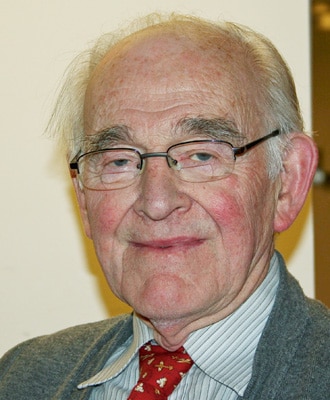Scientists had well understood for many decades that adding carbon dioxide to the atmosphere could raise global temperatures and cause climate change. But when politicians finally took notice, and the Intergovernmental Panel on Climate Change was formed, industry began a war with science itself.
Bert Bolin, the founder of the Intergovernmental Panel on Climate Change (IPCC), was the first scientist to detect signals from the coal and oil industry that there would be serious resistance to climate science and its policy implications.
As soon as governments began taking the issue seriously, the energy industry mobilised its greatest assets in order to combat organised opposition to its climate-damaging activities.
The Global Climate Coalition (GCC) was formed as soon as the IPCC came into being and, as the name suggests, this was an industry-funded powerhouse designed to undermine any global coalition to prevent climate change.
Bolin notes: “The strategy pursued was primarily to minimise the significance of the possible impacts of climate change and to address procedural and legal issues.”
The majors would engage with the issue more quickly than some of the environmental campaign groups.
The British and American oil industry, including British Petroleum, Shell, Exxon and Esso, were already members of the American Petroleum Institute, which in turn formed the GCC in 1989.
The new alliance included the Edison Electric Institute association of American energy companies, alongside national associations representing farming, paper production, iron manufacture, lorry drivers, rail companies and mining associations.
Energy Heavyweights
Glen Kelly, the executive director, would write to the US government introducing the industry group: “The GCC was formed in 1989 to [facilitate] the participation of US business and industry in the domestic and international policy debates.”
“We are accredited as an NGO to the UK Framework Convention on Climate Change and actively have been involved in every stage of the international negotiations over climate policy since the very beginning of the debate.”
The coalition would, through its member associations, represent more than six million American companies, making it “the largest and longest-serving American business coalition in the debate”.
The most energy-intensive industries based in the world’s most dominant economic nations would directly and openly use their weight to influence the climate debate.
The GCC was purpose-built to negotiate with the US government, but it was less well suited to convincing the American public that global warming did not need urgent action, because it was made up of oil majors and heavy industry polluters.
William O’Keefe of the American Petroleum Institute was instrumental in creating the GCC. He also worked with Hayek-inspired free market think tanks, including serving as chief executive of the George C Marshall Institute.
Rising Tide
According to professor Naomi Oreskes, an American historian of Science, the institute had previously focused on defending Reagan’s Strategic Defense Initiative, but with the end of the Cold War it needed a new enemy and decided to target “environmental alarmists”.
William Nierenberg, who founded the Marshall Institute, was given the opportunity to present its first report on climate change, called Global Warming: What Does The Science Tell Us, to White House staff as early as 1989.
Stephen Schneider, the eminent Stanford University climate scientist said: “Sununu is holding up the report like a cross to a vampire, fending off greenhouse warming.”
Big Oil was making billions in profits from the extraction and sale of fossil fuels and would not go down without an almighty fight.
The most obvious and significant obstacle was the British and American public, who had little sympathy for multinational companies who were already the villains in a rising tide of environmentalism.
Subscribe to our newsletter
Stay up to date with DeSmog news and alerts







